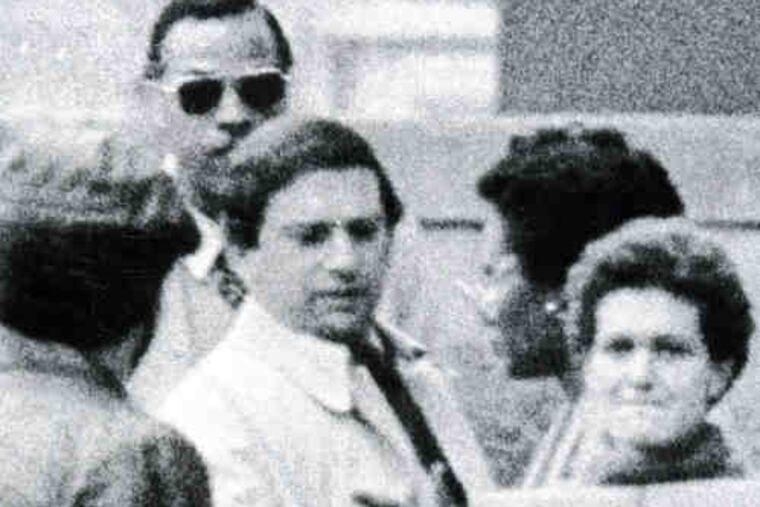From radical to 'life of service'
Susan Rosenberg, post-prison

IT'S BEEN 25 years since Susan Rosenberg was arrested in Cherry Hill on a chilly November night as she unloaded 740 pounds of explosives into a U-Haul storage unit.
Rosenberg's 1984 capture by Cherry Hill police marked the culmination of her long journey from student anti-war protester to radical fugitive disguised with an ill-fitting wig.
Sentenced to 58 years in prison, she received the longest sentence ever given at the time for possession of explosives and weapons.
In a new memoir, titled "An American Radical, A Political Prisoner in My Own Country," Rosenberg - who served 16 years before President Bill Clinton commuted her sentence in 2001 - details her life behind bars at a series of grim maximum-security prisons and isolation units.
"I felt compelled to write the book because I really wanted to have a conversation, and with people who were not of that period, about prisons," Rosenberg told the Daily News last week. "I really believe our society has this propensity to punish."
During her sojourn through prisons in Tuscon, Ariz., Lexington, Ky., Washington, D.C., Marianna, Fla., and Danbury, Conn., she was repeatedly housed in solitary-confinement units and subjected to physical and emotional abuse, Rosenberg writes.
As she struggled to survive, Rosenberg developed AIDS education programs for fellow prisoners and studied for a master's degree in creative writing.
"I continue to feel it was solidarity in the prison that made living in prison a different kind of community, and I began a life of service," Rosenberg said.
Rosenberg, 55, now lives in New York City with her female partner and works for a nonprofit humanitarian organization called the American Jewish World Service.
"I had a second chance," Rosenberg said. "I know how incredible that is."
Born and raised in New York City, Rosenberg took to political activism early, demonstrating against the Vietnam War in the late 1960s as a teenager. Student rebellions were rising around the world, and civil-rights struggles were raging at home.
Rosenberg was quickly caught up in the escalating political climate and joined the Weather Underground - a radical splinter group of the Students for a Democratic Society - and the May 19th Communist Organization, a collective of the Weather Underground and the Black Liberation Army.
"[At] the time it seemed like there was a loosening of culture, there was a counterculture, there was a radicalization," Rosenberg said. "I think we totally misread what was really going on in the world, that somehow a small group of people could mobilize a larger group of people."
By the end of the 1970s, the Vietnam war was over and the protest movement was fading. Many cite a notorious armed robbery in 1981 as the official close of the period. Carried out by members of the Black Liberation Army and the Weather Underground, that robbery of a Brink's armored truck in Nyack, N.Y., left two police officers and a security guard dead.
Rosenberg, who was working as an acupuncturist in Harlem at the time, was named in a 1982 indictment in the case. She denies any involvement, but fled the charges, going underground.
"I think it was a mistake," Rosenberg said. "I think I should have fought that case. I would have won that case. I didn't think the system was going to work. I was past believing that there would be a just resolution of that. I was also on the path of radical activism. One thing led to another. You can't go back, you can't move backwards."
Rosenberg remained underground until her 1984 arrest in New Jersey. She was never put on trial for the Brink's case and the charges were later dropped, with then-U.S. Attorney Rudy Giuliani saying that the long prison term handed out in New Jersey was punishment enough.
Rosenberg later admitted regret for stockpiling ammunition and arms. She was still caught up in the idea of revolution years after other radicals moved on.
But she has maintained her innocence in the Brink's case, and said that the charges were dropped because there was never enough evidence to try her. Still, the association with Brink's was enough for her parole efforts to repeatedly be denied.
In one of the most moving sections of her book, Rosenberg is repeatedly denied her request to visit her dying father in Connecticut, due to the nature of her crime. But she gets a last-minute reprieve and is escorted to his bedside, where he pushes her to keep fighting for release.
"I apologized to my parents for everything I had done and all the suffering my actions had caused," Rosenberg writes. "I promised my father I would be free, and that I would take care of Mom."
Eventually, Rosenberg made good on that promise. She credits a strong support network of friends and lawyers who lobbied on her behalf. And while radicalism is behind her, she sees echoes of the freedoms she was fighting for in the struggles today in the Middle East.
"We need democracy and we need human rights," Rosenberg said. "I think everybody's always wanted a better life. The jury's still out on how it's going to end in the Middle East. People woke up and said 'We're not going to be dictated to.' "